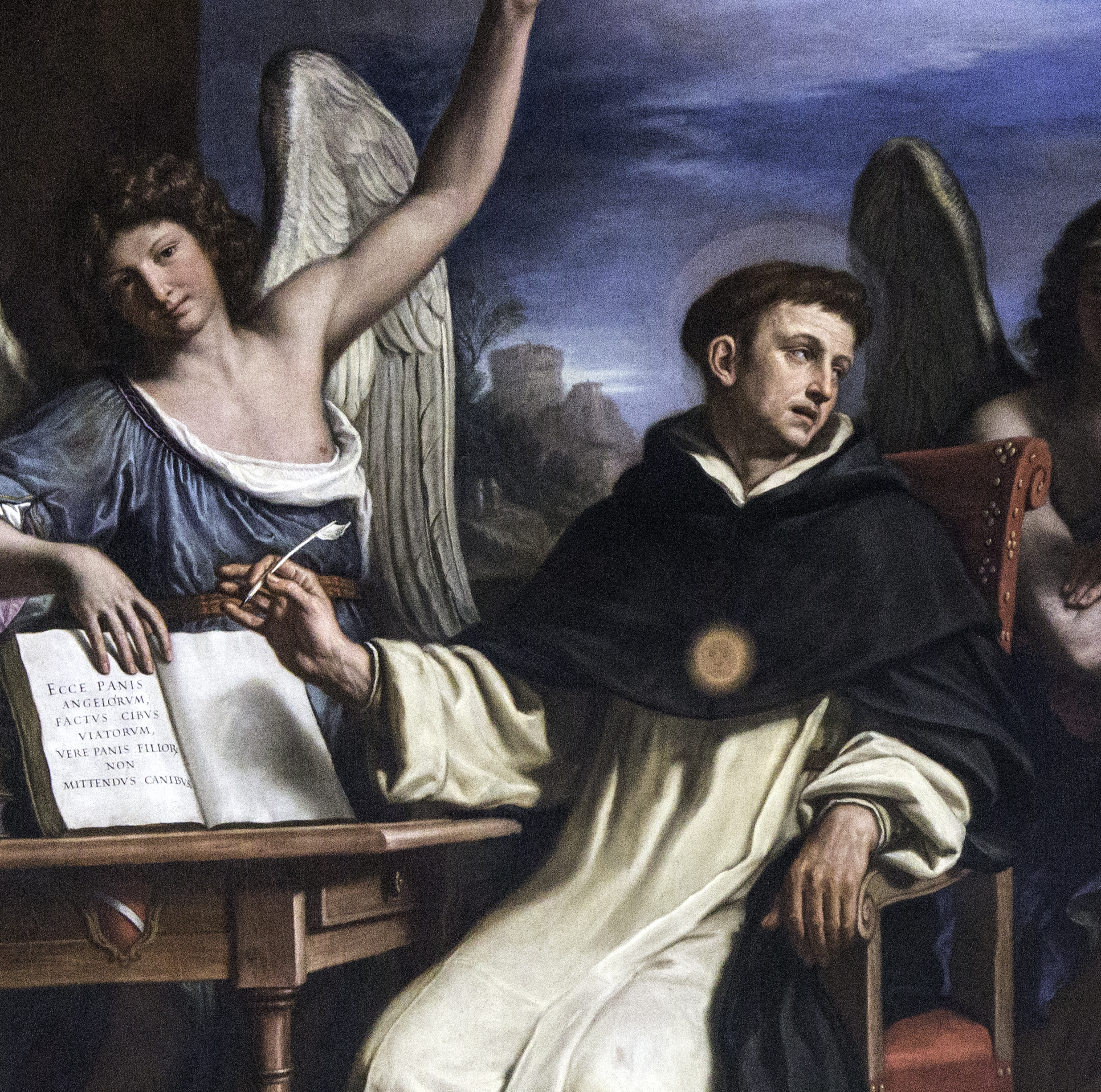Chapter 44: The Soul’s Immutability After Death¶
Why does death make the soul immutable, either in good or in evil? The most explicit answer is found in the Summa contra Gentiles. 995.
Our will for a definite last end depends on our will’s disposition; as long as this disposition lasts, the desire of this end cannot change, since it changes only by the desire of something more desirable as last end.
Now the soul’s disposition is variable during its union with the body, but not after separation from the body. Why? Because changes in the body bring corresponding changes in the soul’s disposition, since the body has been given to the soul as instrument of the soul’s operations. But the soul, separated from the body, is no longer in motion toward its end, but rests in the end attained (unless it has departed in a state of failure toward this end).
Hence the will of the separated soul is immutable in the desire of its last end, on which desire depends all the will’s goodness, or then all its malice. It is immutable, either in good or in evil, and cannot pass from one to the other, though in this fixed order, immutable as regards the last end, it can still choose between means. 996.
In this line of reasoning we see again the force of the doctrine on the soul as form of the body. Since the body is united to the soul, not accidentally, but naturally, to aid the soul in tending to its goal, it follows that the soul, separated from the body, is no longer in a state of tendency to its good.
Cajetan proposes on this subject an opinion which seems to disregard the distance that separates the angel from the human soul. Having said that the angel’s choice of a good or evil end is irrevocable, he adds these words: “As to the soul, I hold that it is rendered obstinate by the first act which it elicits in its state of separation and that its final act of demerit occurs, not when it is in via, but when it is in termino.” 997.
Thomists in general reject this view. Thus Sylvester de Ferrara, who says: The soul in the first moment of its separation has indeed immutable apprehension, and in that first moment begins its state of obstinacy. But it does not, as some say, have in that moment a demeritorious act, because human demerit like human merit presupposes man. Now the separated soul is not a man, not even in its first moment of separation. Rather, that moment is the first moment of its non-existence as man. Therefore its obstinacy is caused, inchoatively, by its last mutable apprehension of its last end before death, but irrevocably by that apprehension which becomes immutable in its first moment of separation. 998.
The Salmanticenses 999 pronounce thus on Cajetan’s opinion, saying: “This mode of speaking does not agree with Scripture, which states expressly that men can merit or demerit before death, but not after death. ‘We must work while it is day: the night cometh when no man can work. ‘ ” 1000.
Cajetan conceived the matter too abstractly. He saw correctly that man’s road to God is terminated by the moment when that road closes. 1001 But he did not notice that merit belongs to the man who is on the road, not to the separated soul. The last merit, or demerit, so St. Thomas and nearly all his commentators, is an act of the soul still in union with the body, and this act of the united soul becomes immutable by the soul’s separation from the body.
Hence it is wrong to say: The condemned soul, seeing its misery, can still repent. Of such a soul, as of the fallen angel, we must rather say: The pride wherein it is immovably fixed closes the road of humility and obedience whereby alone it could repent. Could a soul repent after final impenitence, it would no longer be condemned.
The contrary immutability, that of those who die in the state of grace, the immutability of their free choice of the Supreme Good, supremely loved, is a wonderful echo of the immutability of God’s own freedom of choice. God, knowing beforehand all that he has either willed or permitted to come to pass in time, can have no reason to change. Thus, when the separated soul of one of the elect receives the beatific vision, it loves God seen face to face with a love beyond its freedom, a love that is indeed spontaneous, but necessary and inamissible. 1002.
We have here, then, in the grace of a good death, a new view of the grand mystery, namely, the mystery of the inner harmony between infinite mercy, infinite justice, and sovereign freedom, a harmony realized in the pre-eminence of the deity, but obscure to us as long as we have not been raised to the beatific vision.
- 995
Bk. IV, chaps. 91-96. In particular, chap. 95.
- 996
See, again, in chap. 91: Statim post mortem animae hominum recipiunt pro meritis vel poenam vel praemium.
- 997
In Iam, q. 64, a. 2, no. 18.
- 998
In Cont. Gent.: chap. 95.
- 999
De gratia, de merito, disp. 1, dub. IV, 36.
- 1000
John 9: 4. See II Cor. 5: 10.
- 1001
Per primum non esse viae.
- 1002
Ia IIae, q. 5, a 4.
